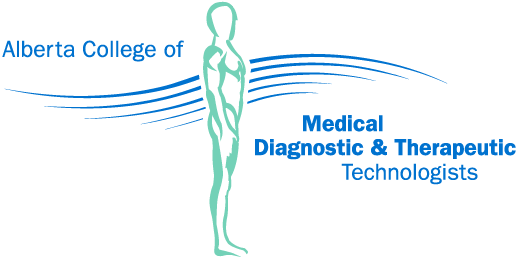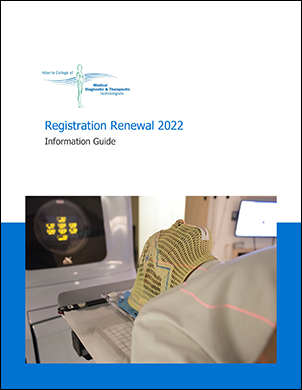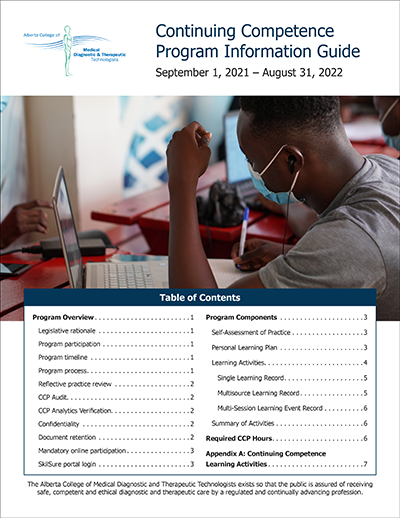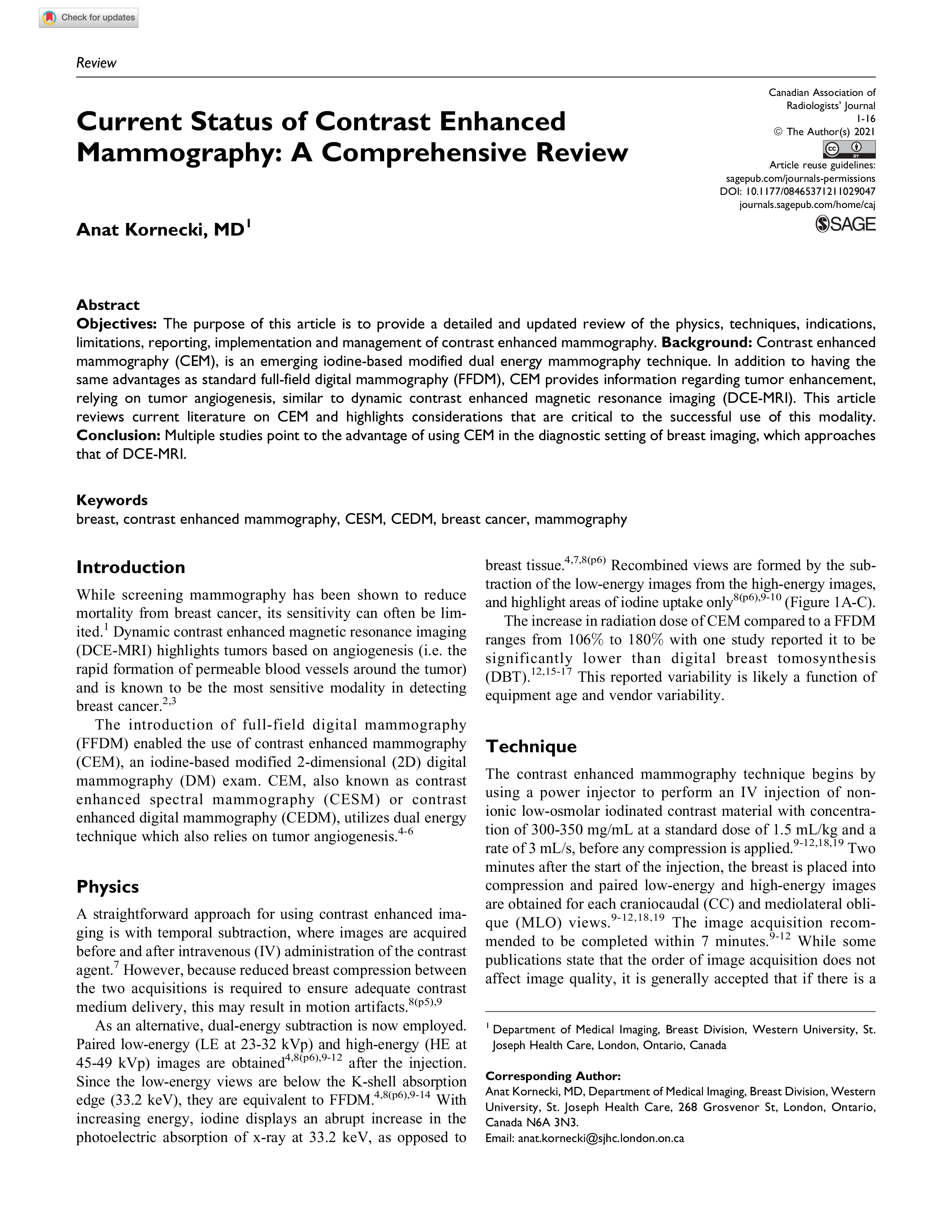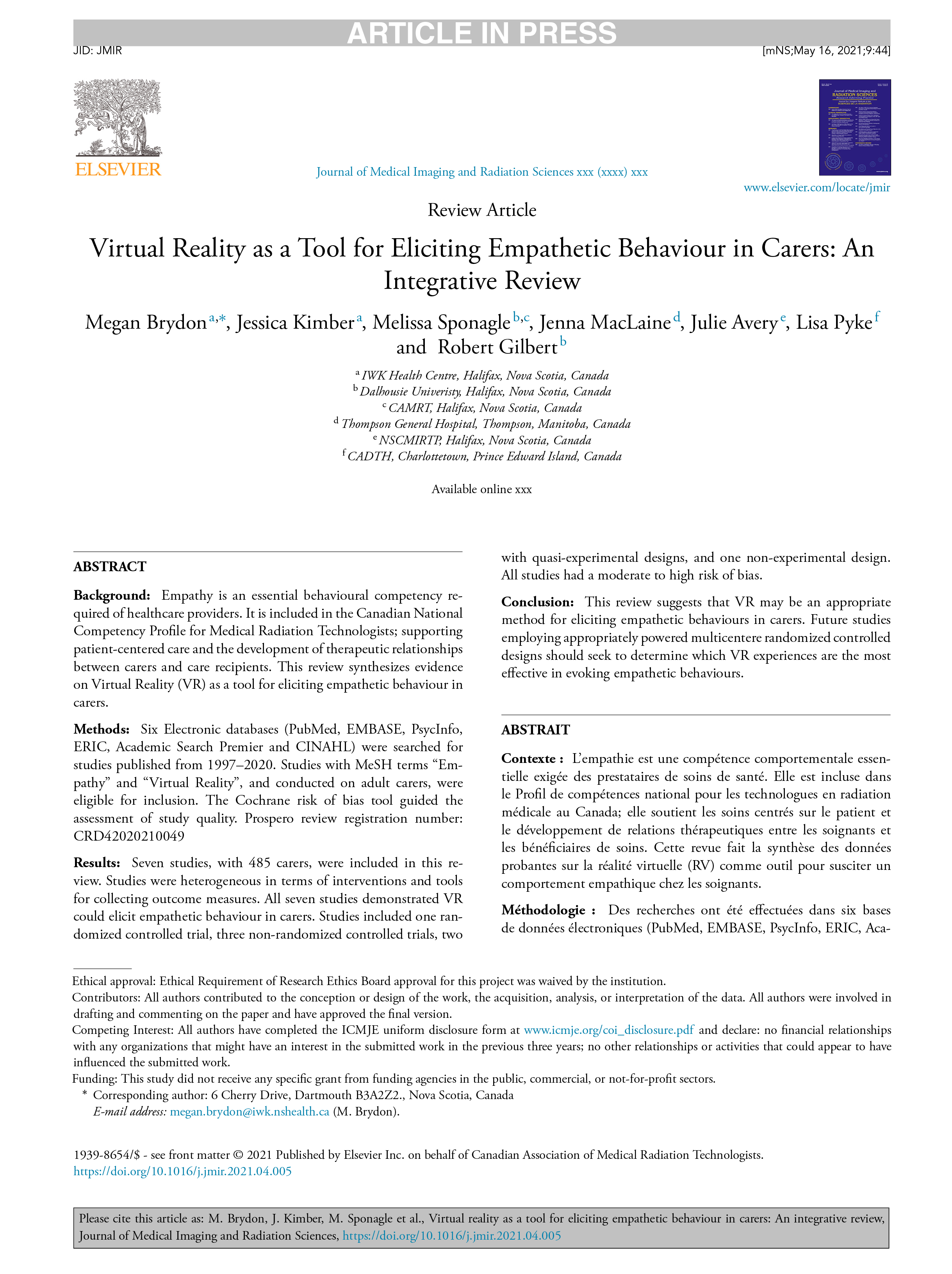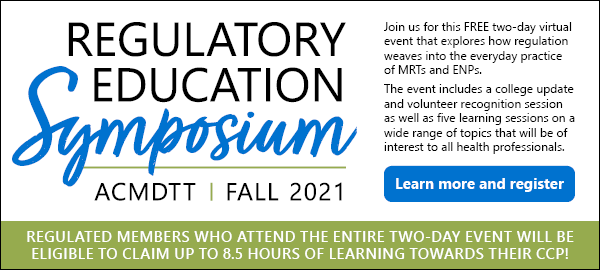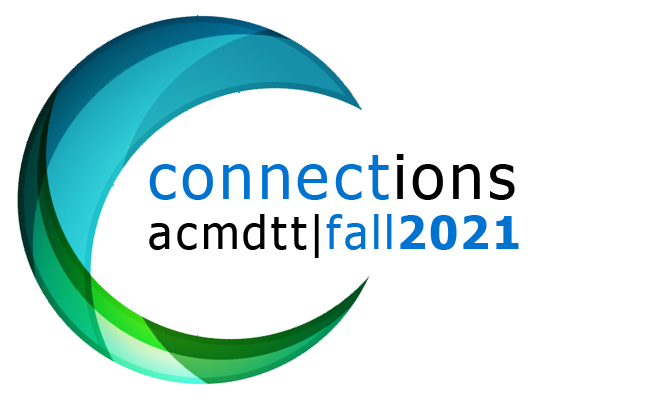
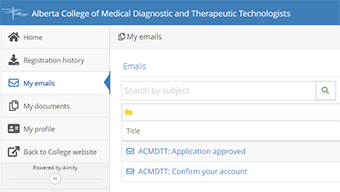 Member emails added to My Profile
Member emails added to My Profile
Email is the main method we use to communicate with our members; however, we sometimes hear from members that they did not receive important messages we sent. There are many reasons an email might not make it into a member’s inbox, so the College has added a new “My emails” page to My Profile to provide members an alternative method to access important messages. We recommend that you periodically check this page to make sure you haven’t missed any important communications, including notices pertaining to your registration, registration change/renewal approvals, and requests for further information or documentation.
While the most important emails will now be available through My Profile, it is still necessary to ensure the email account you use is one you have consistent access to and check regularly. We strongly recommend using a personal email address rather than a work or school email address because messages we send may include sensitive information, and because large organizations often have very strict security protocols on their email servers that can block our emails before they even reach your account. It also ensures you will continue to receive emails from the College and maintain access to previous communications if you move to a different employer or take a leave of absence. Most College emails are sent from registration@acmdtt.com and communications@acmdtt.com, so please add these email addresses to your contact/safe sender list and regularly check your junk/spam/promotions folder to make sure you don’t miss any important messages.
Please see the news post about the “My emails” page for more details.
Additional and enhanced practice authorization update
In July, Council approved the following training programs for additional and enhanced practice authorizations:
- Automated Breast Ultrasound – Insight Medical Imaging
- Medication Administration and Aseptic Technique – Beam Radiology -Calgary
- Medication Preparation and Aseptic Technique – Peace Diagnostic Imaging
A full list of all additional and enhanced practice authorizations and their approved training programs can be found on the Additional and Enhanced Practice Authorization page. Regulated members should note that in order to perform any of the activities listed on this page, you must first complete one of the corresponding approved programs, then apply for authorization through My Profile. Once you have submitted your application, your supervisor must confirm your competence and the College has to review and approve the application before you are authorized to perform the associated activity.
All additional and enhanced practice authorizations expire on December 31 every year. During the annual renewal process, you will be asked if you want to renew each authorization you have. If you say “Yes,” you will need to verify your supervisor’s information, and when you submit your renewal your supervisor will be sent an email with a link where they can confirm that you are still competent to perform the associated activity. Please note that while some workplaces may require you to complete training every year for an activity requiring additional or enhanced practice authorization, the College only requires documentation for your initial application and accepts your supervisor’s sign-off as sufficient evidence in subsequent renewals.
Change to PLI requirement
The College now requires regulated members to hold professional liability insurance (PLI) that covers a minimum of $2,000,000 per occurrence (previously $1,000,000). A review of the most common PLI policies held by our members (e.g., CAMRT, AHS and Medical Imaging Ed) shows that they already meet this new standard; however, all regulated members should verify that their current policy offers sufficient coverage. MRTs and ENPs who work in multiple practice locations should ensure that they have insurance coverage for all the locations in which they practice the profession.
During the annual registration renewal process, you will need to declare that you hold the required PLI. The College encourages all regulated members to hold personal PLI even if you have coverage through your employer. There will be a new declaration during renewal this year that states you are responsible for selecting your PLI provider and understanding the coverage they provide, and that you are aware of the risks of holding only employer PLI.
To learn more about the risks of holding only employer PLI, please see the Professional Liability Insurance (PLI) page.
Membership meetings removed from bylaws
The College is continuing to review our operations and implement changes related to Bill 46. The Health Professions Act (HPA) does not require the College to hold an annual membership meeting, while the Alberta Societies Act, which governs professional associations in the province, does require these types of meetings. This can create confusion about the regulatory role of the College, so Council has determined that membership meetings are an association activity and removed the requirement that the College hold a membership meeting every year from the bylaws.
For more information, please see the news post about membership meetings being removed from the bylaws.
College operations update
The Government of Alberta announced on September 16 that it was declaring a state of emergency due to COVID-19 and introducing new measures to protect the health care system, stop the spread, and increase vaccination rates. The College has taken steps to comply with these new measures.
Staff are now working remotely full time and the College office is closed. If you feel you need to visit the office for any reason, please email info@acmdtt.com to discuss your options. Staff remain readily available by email and by phone at 780.487.6130 or 1.800.282.2165. Our phone system is in the process of being upgraded to allow for more seamless remote functionality, and if you are ever unable to reach us directly, please feel welcome to leave a voicemail and someone will get back to you as quickly as possible.
The College has also cancelled upcoming in-person meetings or moved them to virtual formats. Our upcoming Regulatory Education Symposium is already an entirely virtual event and will therefore proceed as planned.
The online annual registration renewal system opens this Friday, October 1! All regulated members of the College who plan to practice the profession in 2022 must renew their registration by November 30, 2021, to avoid an additional administration charge.
Maintaining your College registration in good standing is one of the most important legal obligations for all MRTs and ENPs practicing in Alberta. Under the Health Professions Act (HPA) and the Medical Diagnostic and Therapeutic Technologists Profession Regulation (the Regulation), all regulated College members are required to renew their registration each year in order to be legally authorized to practice the profession of medical radiation or electroneurophysiology technology in Alberta.
Please note that the associate membership category of registration has been discontinued as of January 1, 2022, so members will not have the option of renewing as an associate for 2022. Members who are currently registered as non-practicing associates will have the option of reinstating their general registration or resigning their membership.
We encourage all members to read the information on the Annual Renewal page before beginning their renewal and consult the following as needed:
- Registration Renewal 2022 Information Guide – Detailed information about all aspects of the renewal process
- Member Portal Renewal Manual – Step-by-step instructions for completing your renewal in My Profile along with screenshots of the system
- Registration renewal tips
- Frequently asked questions
If you have any questions about the annual renewal process, please feel welcome to contact us by email at registration@acmdtt.com or by phone at 780.487.6130 or 1.800.282.2165.
The 2021-22 Continuing Competence Program (CCP) cycle began on September 1 and runs until August 31, 2022. Participation in the CCP is required by legislation as a means for MRTs and ENPs in Alberta to provide a tangible record of how they are continually learning and improving their skills. Every member who is on the general register for any portion of a CCP cycle is required to complete a reflective practice review every year, which includes a self-assessment, a learning plan and records of learning activities.
We encourage regulated members to complete their self-assessment and learning plan within the first few months of a new CCP cycle in order to more effectively plan their learning activities for the year. Please note that the number of required hours of learning has returned to normal for the 2021-22 cycle, so members who hold general registration for the entire CCP cycle are required to complete 24 hours of learning by August.
More information about the CCP can be found in the 2021-2022 Continuing Competence Program Information Guide and on the Continuing Competence section of the College website under the “Members” menu. If you have any questions about the CCP or the My CCP platform, please feel welcome to contact our Director of Education and Competence, Linda O’Hara, at lohara@acmdtt.com or 780.487.6130.
Megan Brydon, Jessica Kimber, Melissa Sponagle, Jenna MacLaine, Julie Avery, Lisa Pyke and Robert Gilbert
View the article in the Journal of Medical Imaging and Radiation Sciences
 Daniel is a radiological technologist working in interventional radiology. The next procedure he will be involved in is an IVC filter insertion. The radiologist has decided to use a femoral approach (access). He has asked Daniel to prepare the patient’s right groin area for the procedure. Daniel approaches the patient and explains what he is about to do. Daniel lowers the sheet to expose the groin area, keeping the genital area covered. He then shaves the area where the puncture will take place. Daniel then cleans the area with chlorhexidine and covers the area with a sterile drape. Daniel informs the radiologist that the patient has been prepped and is ready for the procedure.
Daniel is a radiological technologist working in interventional radiology. The next procedure he will be involved in is an IVC filter insertion. The radiologist has decided to use a femoral approach (access). He has asked Daniel to prepare the patient’s right groin area for the procedure. Daniel approaches the patient and explains what he is about to do. Daniel lowers the sheet to expose the groin area, keeping the genital area covered. He then shaves the area where the puncture will take place. Daniel then cleans the area with chlorhexidine and covers the area with a sterile drape. Daniel informs the radiologist that the patient has been prepped and is ready for the procedure.
Is this within Daniel’s scope of practice?
Questions that need to be asked:
1. Is Daniel authorized to prepare a patient for an interventional procedure?
The activity of preparing a patient before an interventional imaging procedure is not listed as a restricted activity within HPA legislation. Although completion of a College training or authorization is not required, it is the expectation of the College that the technologist involved will have received appropriate formal training, including didactic and clinical components and assessments, in order to perform this activity safely, ethically and competently. Once initial training has been successfully completed, as a regulated professional, it is the technologist’s responsibility to ensure ongoing competence in this area of practice.
2. What is Daniel’s responsibility to his patient?
As a radiological technologist, Daniel’s professional responsibility is to ensure he has the education and knowledge to perform patient preparation for an interventional radiology procedure. Regardless of the expected task performed, it is imperative that the technologist ensures that they have received appropriate education and training for these activities and that they limit their professional activities to those they are competent to perform and that are applicable to their area of practice. Whether the technologist maintains this competency, during professional practice, is usually a result of employer expectation and the technologist’s area of practice. As a result, the technologist is encouraged to collaborate with their employer to ensure that they receive initial training and ongoing pedagogic support appropriate to this practice.
In the MRT area of practice, the MRT must perform the activity in compliance with the College’s regulations, Standards of Practice and Code of Ethics (as listed below) and employer policy. Regulated members who display a lack of knowledge, skill or judgment in the provision of professional services or who contravene legislation, the Code of Ethics or Standards of Practice are considered to have committed unprofessional conduct.
Standards of Practice
Standard 1.2 Clinical Procedures
To demonstrate this Standard, a regulated member will:
- a. Take actions to prepare for the procedure (e.g., verify procedure ordered, ensure procedure requisitions/prescription contains required patient information, verify correct patient/anatomical location).
- e. Possess the necessary competence to perform the procedure safely and effectively.
Standard 2.1 Legislation, Standards and Ethics
To demonstrate this Standard, a regulated member will:
- a. Assume personal responsibility for the quality and competence of the member’s practice.
- b. Maintain and apply the knowledge, skills, judgments and behaviours necessary for safe, competent and ethical practice.
Standard 2.2 Professional Competence
To demonstrate this Standard, a regulated member will:
- b. Practice within the limits of the member’s competence.
- c. Maintain knowledge of current and evolving technologies and integrate new learning into practice, as appropriate.
Code of Ethics
Principle 2 – Responsibility to the profession
- c. Boundaries of competence – A regulated member limits their practice to those techniques and procedures that the member is competent and currently authorized to perform by virtue of education and experience and are consistent with the College’s standards.
Principle 3 – Responsibility to oneself
- b. Accountability – A regulated member takes responsibility and is accountable for their professional activities.
There are many documents that help guide a regulated member’s practice. View these documents on our Resources page or use the Decision-Making Tool to work through a specific scenario.
The Health Professions Act (HPA) states that every person who meets the College’s registration requirements and intends to practice the profession of medical radiation or electroneurophysiology technology must apply for registration with the College. Practice involves not only the clinical and technical aspects of the profession; it also includes, but is not limited to, functions of education, management, research and administration.
Essentially, this means that if you have the necessary qualifications, you must apply for registration if you will be working in a job where you will be using your professional skills or knowledge in any way. It also doesn’t matter the length of time you plan to practice; for example, if you’re retired and return to work for only one shift, you still need to have a valid practice permit.
If you’re ever unsure if something counts as professional practice, please feel welcome to reach out to the College at practiceadvisor@acmdtt.com and we will be happy to discuss your particular situation and answer any questions you have.
